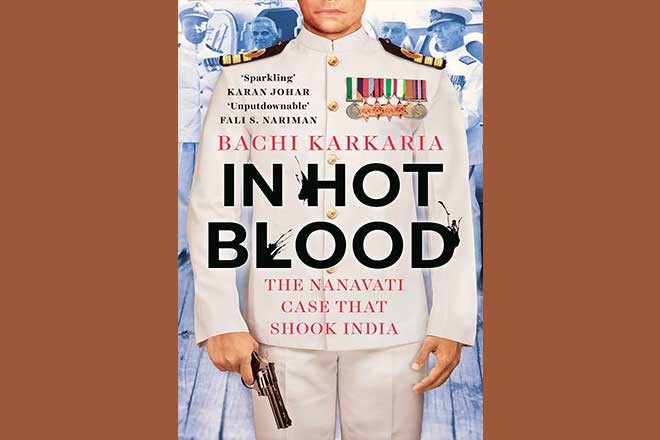BOOK REVIEW
Would you be interested in reading about a murder case that took place six decades ago in India and which was discussed predominantly in the newspapers of that era? Yes, considering the murderer and the murdered were high-profile individuals, a Bollywood film Rustom featuring Akshay Kumar was based on the case and its verdict changed the way cases were decided in courts. Interesting, isn’t it?
Bachi Karkaria’s in Hot Blood – The Nanavati Case That Shook India takes you down memory lane when Mumbai didn’t have gangsters but socialites who spent their evenings in parties; when the elite was discussed only by those who were rich enough to be closer to them; when India was a developing country, immediately after Independence. It discusses intricate details of the famed Nanavati Vs The State case that revolved around the simple plot of a man killing his wife’s lover. However, the man here was Commander Kawas Manekshaw Nanavati, a decorated soldier while the victim was Prem Ahuja, a Sindhi businessman and a known ‘ladies’ man’. Sylvia, the bone of contention between the two, sided with her husband but had to migrate later to avoid ‘being trolled’ in modern words.
You might know a little about the case if you have seen Rustom, but according to this book, the case was altogether different from how it was depicted on the screen. The accused didn’t argue his case like the film, there was a mistrial instead of an acquittal and the wife and kids of Kawas Nanavati stayed at her in-laws rather than at her own place. But that’s the one aspect from the point of view of cine-goers; those interested in history will get to know that paparazzi in India was born with that case as one community (the Parsis) supported their man while the others (the Sindhis) claimed that it was a premeditated murder instead of self-defense.
As soon as you start reading the book, you’ll discover that the case revolved around the life of three individuals – an honorable husband, an exotic foreign wife and a sleazy seducer who always got what he wanted. However, the author has spoken to all directly involved with the case (and still alive, that is) to come up with her own conclusions. It wasn’t a Sindhi vs Parsi case anymore because the man accused to be the killer claimed to have done it in self-defense and had answers for everything the lawyer threw at him. His wife testified in court and stayed strong despite cross examination, something that many praised during that era and even admire today.
The case was contested by the best lawyers in India and became a landmark because the jury found the commander not guilty; that one verdict changed the way cases were decided in India. It went onto be known as the last case decided by a jury in India and even inspired as many as three Bollywood films including Sunil Dutt’s Yeh Raaste Hain Pyar Ke, Vinod Khanna’s Achanak and Akshay Kumar’s Rustom. The book also talks about the trauma faced by Sylvia, the commander’s wife and how she managed to raise her kids during the time her husband was imprisoned, and why she chose to settle abroad once her husband was pardoned.
Bachi Karkaria’s book is not like any other murder mystery because it happened in reality; you get to know how Prem Ahuja’s sister Mamie got the best lawyer to observe the case, how the whole Parsi community stood behind their own, how R. K. Karanjia’s Blitz openly supported Nanavati and even affected the jury’s verdict or how the business community cashed in with their ingenuity. Views from those who were present at the hearing, who were class fellows of the victim’s children, who played an important part in getting a favorable verdict is what makes this book outstanding.
The writer must be commended for presenting the viewpoint of both the parties – in the book Prem is not just the villain and Kawas wasn’t just the protagonist; the other side of their life was discussed so as to give the audience a neutral perspective. She must also be commended for successfully finding out that Pakistani writer Bapsi Sidhwa was related to the accused, that Prem Ahuja’s secretary was still alive and that one of the lawyers who played an integral part in the pardon wanted to tell his side of the story willingly.







